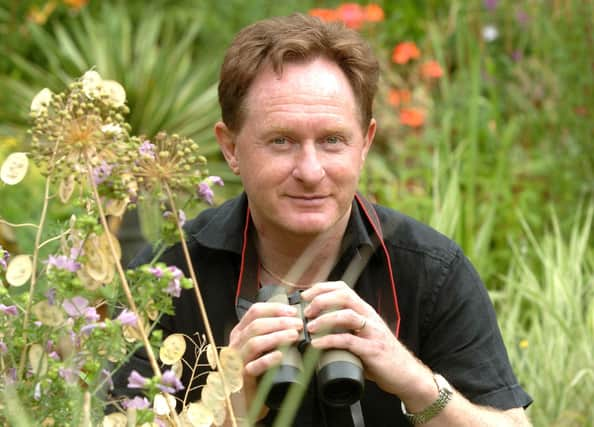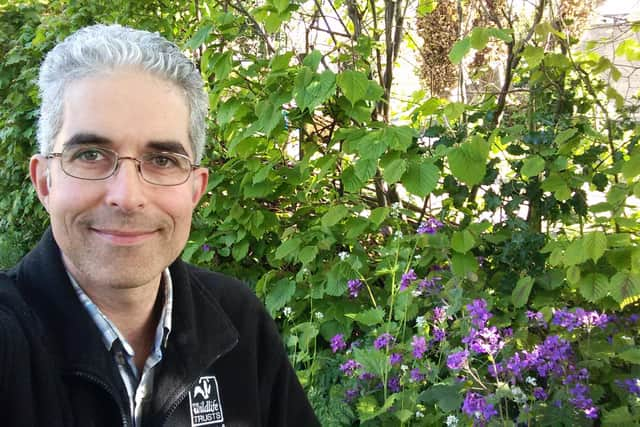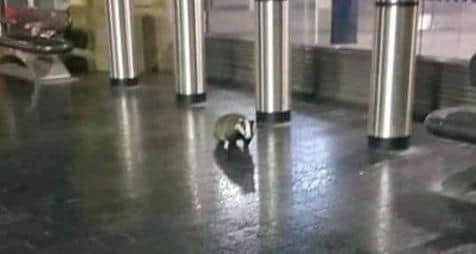Sheffield's wildlife takes back control of the city during coronavirus lockdown


Badgers and Muntjac deer are just some of the animals that have been spotted enjoying Sheffield’s empty city centre while the nationwide lock down, which hopes to slow the spread of Covid-19, continues.
While experts from Sheffield and Rotherham Wildlife Trust maintain that while ‘we’re not seeing a recovery of wildlife’, they say the ‘lack of disturbance’ to animals is having a positive effect and causing them to be more daring.
Advertisement
Hide AdAdvertisement
Hide AdIt’s after a Muntjac deer was seen trotting around a car park on St Mary’s Road, in the city centre – on the same week that East Midlands Railway confirmed the sighting of a badger on the deserted concourse of Sheffield Station.


Living Landscapes Manager at Sheffield and Rotherham Wildlife Trust, Nabil Abbas, explained how the month long government shutdown, which has seen non-essential businesses close and high numbers of people working from home, is causing changes to the region’s wildlife.
"Basically, because there are less people out and about and particularly less traffic on the roads, that means that wildlife can have a lot less disturbance than it normally would.
"That means it can move around more freely and what we are seeing is wildlife moving around in places that it probably wouldn't normally be.
Advertisement
Hide AdAdvertisement
Hide Ad"We are not seeing a recovery of wildlife because it's only been a month but it's about the freedom of movement that they have and the lack of disturbance.


"Sheffield is lucky because it's an extremely green city and because of the geography of the city, we've got a lot of river valleys, green spaces which form a green network around the city.
"In ordinary times, wildlife is moving around all the time but we don't really see it, it's just that right now because of a reduction in traffic it's popping up in places we wouldn't normally see.”
The Trust, which relies on volunteers to maintain Sheffield’s landscapes – maintains that wildlife is becoming more appreciated by residents across the city, particularly with the warm weather during lock down.
Advertisement
Hide AdAdvertisement
Hide Ad"It's really important for people right now to be experiencing wildlife - a lot of people are stuck at home and they are spending more time in the garden”, Nabil added.
"It's been a glorious spring and people are seeing and hearing a lot more birds, seeing lots of butterflies, seeing insects in their garden.
“So we are delighted that people are seeing nature more and we hope that in the future, people maintain that connection with nature because it's really good for them and it makes people value it more.”
It’s not just animals who are enjoying their new found freedom while only essential travel is permitted, plants on road verges also appear to be flourishing, according to the charity.
Advertisement
Hide AdAdvertisement
Hide Ad"People are commenting on the dandelions and buttercups across the road verges and that's really good because we don't need to cut the road verges every week.
"Wild flowers are better for insects, it provides pollen and nectar and that's just one example of an unexpected consequence of lock down.”
Professor Ian Rotherham, who teaches Environmental Geography at Sheffield Hallam University, agrees that more people across the region are engaging with the nature that is on their doorstep during the shutdown period.
“There is two things that are happening here, there is what wildlife is doing but also what we, as people, are doing.
Advertisement
Hide AdAdvertisement
Hide Ad"People going to the Peak District are walking locally and they are suddenly engaging with their own patch but they are doing so as a person, or just two people rather than a gang – and they are seeing all sorts of stuff that they didn't know was there.”
The Environmental Geography lecturer believes these unusual sightings are a direct result of the sharp decline in footfall across the city centre.
"What we are finding is that badgers are coming right into the heart of the city or where there is a green space.
"What's happening with the shutdown is that wildlife is suddenly emerging in places that people hadn't really thought.
Advertisement
Hide AdAdvertisement
Hide Ad"And people are actually walking their patch and getting to see it and seeing things that they wouldn't perhaps normally see.
While the potential benefit lock down has had on the environment, still remains to be seen, he hopes people continue to appreciate their nearby nature, long after measures are lifted.
"If there's anything positive to come out of this, perhaps local people learn what is on their doorstep and maybe we take a different view and try and manage those spaces more positively in the future.”
Friends of Charlton Brook, a community group who maintain the small stream which runs through Chapeltown, have documented a rise in the number of new volunteers who want to help conserve the area.
Advertisement
Hide AdAdvertisement
Hide AdChair, Michelle Dickinson, said: "Already we have had more people reach out to us and say they would like to get involved with us because they haven't walked through the green spaces for many years.
"They've seen our signs up on our display boards and they didn't even know that there was a group who looked after the area.”
She hopes this enthusiasm for wildlife will continue beyond the lock down and translate into people taking better care of their green spaces.
"Since the lock down has come in, we've seen less and less litter and I think the community do now see the benefit of keeping it a nice, tidy environment.”